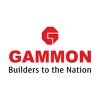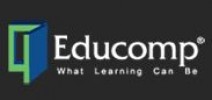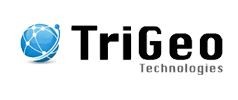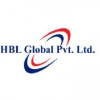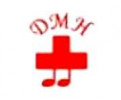5 M.R.Speciality Chemicals Jobs
Internal Auditor
M.R.Speciality Chemicals
posted 13d ago
Job Role Insights
Key skills for the job
Job Description
The job description of an Internal Auditor involves evaluating and assessing the effectiveness of an organizations internal controls, risk management processes, and financial operations. Internal Auditors help ensure compliance with policies, regulations, and industry best practices. Here is a typical job description for an Internal Auditor:
1. Audit Planning and Execution: - Developing and implementing an annual audit plan based on organizational priorities and risks. - Conducting risk assessments and identifying areas requiring internal audit attention. - Planning and executing internal audit engagements, including determining audit scope, objectives, and methodologies. - Conducting interviews, observations, and analysis to gather audit evidence. - Performing data analysis and utilizing appropriate audit tools and techniques. - Evaluating internal controls, operational processes, and compliance with policies and regulations. - Identifying control deficiencies, risks, and areas for improvement. - Preparing and presenting audit findings and recommendations to management.
2. Compliance and Regulatory Audits: - Ensuring compliance with laws, regulations, and industry standards. - Conducting audits to assess adherence to internal policies and procedures. - Evaluating compliance with relevant laws and regulations, such as tax, labor, or environmental regulations. - Keeping abreast of changes in regulations and updating audit programs accordingly. - Recommending and implementing control measures to mitigate compliance risks.
3. Financial and Operational Audits: - Reviewing financial statements, accounts, and transactions to assess accuracy, completeness, and adherence to accounting standards. - Evaluating financial controls, processes, and systems to identify weaknesses and recommend improvements. - Assessing operational processes and efficiency to identify areas for cost savings or process optimization. - Reviewing procurement, inventory, and production processes to ensure effective controls and minimize operational risks.
4. Risk Management: - Assisting in the identification and assessment of enterprise risks. - Evaluating the effectiveness of risk management processes and controls. - Providing recommendations to mitigate identified risks and enhance risk management practices. - Monitoring risk mitigation actions and reporting on the status to management.
5. Internal Control Enhancement: - Collaborating with management to enhance internal controls and governance frameworks. - Advising on the design and implementation of effective control procedures. - Conducting periodic reviews of control systems to ensure their continued effectiveness. - Providing guidance and training to employees on internal control principles and practices.
6. Stakeholder Engagement and Communication: - Building positive working relationships with key stakeholders, including management, staff, and external auditors. - Communicating audit findings, recommendations, and action plans to relevant stakeholders. - Facilitating discussions and providing guidance on remedial actions and improvement initiatives. - Preparing and presenting audit reports to management and the audit committee.
7. Professional Development and Continuous Learning: - Staying updated with industry trends, regulatory changes, and emerging internal audit practices. - Participating in professional development activities, training programs, and relevant certifications. - Maintaining professional ethics and independence in performing audit responsibilities.
Key Qualifications and Skills: - Bachelors or Masters degree in accounting, finance, or a related field. - Professional certifications such as Certified Internal Auditor (CIA) or Chartered Accountant (CA) are preferred. - Strong knowledge of auditing standards, internal control frameworks, and risk management principles. - Experience in internal audit, external audit, or risk management is desirable. - Familiarity with relevant laws, regulations, and accounting standards. - Proficiency in audit software, data analysis tools, and MS Office applications. - Excellent analytical, problem-solving, and critical-thinking skills. - Strong written and verbal communication skills. - Ability to work independently, manage multiple tasks, and meet deadlines.
1. Audit Planning and Execution: - Developing and implementing an annual audit plan based on organizational priorities and risks. - Conducting risk assessments and identifying areas requiring internal audit attention. - Planning and executing internal audit engagements, including determining audit scope, objectives, and methodologies. - Conducting interviews, observations, and analysis to gather audit evidence. - Performing data analysis and utilizing appropriate audit tools and techniques. - Evaluating internal controls, operational processes, and compliance with policies and regulations. - Identifying control deficiencies, risks, and areas for improvement. - Preparing and presenting audit findings and recommendations to management.
2. Compliance and Regulatory Audits: - Ensuring compliance with laws, regulations, and industry standards. - Conducting audits to assess adherence to internal policies and procedures. - Evaluating compliance with relevant laws and regulations, such as tax, labor, or environmental regulations. - Keeping abreast of changes in regulations and updating audit programs accordingly. - Recommending and implementing control measures to mitigate compliance risks.
3. Financial and Operational Audits: - Reviewing financial statements, accounts, and transactions to assess accuracy, completeness, and adherence to accounting standards. - Evaluating financial controls, processes, and systems to identify weaknesses and recommend improvements. - Assessing operational processes and efficiency to identify areas for cost savings or process optimization. - Reviewing procurement, inventory, and production processes to ensure effective controls and minimize operational risks.
4. Risk Management: - Assisting in the identification and assessment of enterprise risks. - Evaluating the effectiveness of risk management processes and controls. - Providing recommendations to mitigate identified risks and enhance risk management practices. - Monitoring risk mitigation actions and reporting on the status to management.
5. Internal Control Enhancement: - Collaborating with management to enhance internal controls and governance frameworks. - Advising on the design and implementation of effective control procedures. - Conducting periodic reviews of control systems to ensure their continued effectiveness. - Providing guidance and training to employees on internal control principles and practices.
6. Stakeholder Engagement and Communication: - Building positive working relationships with key stakeholders, including management, staff, and external auditors. - Communicating audit findings, recommendations, and action plans to relevant stakeholders. - Facilitating discussions and providing guidance on remedial actions and improvement initiatives. - Preparing and presenting audit reports to management and the audit committee.
7. Professional Development and Continuous Learning: - Staying updated with industry trends, regulatory changes, and emerging internal audit practices. - Participating in professional development activities, training programs, and relevant certifications. - Maintaining professional ethics and independence in performing audit responsibilities.
Key Qualifications and Skills: - Bachelors or Masters degree in accounting, finance, or a related field. - Professional certifications such as Certified Internal Auditor (CIA) or Chartered Accountant (CA) are preferred. - Strong knowledge of auditing standards, internal control frameworks, and risk management principles. - Experience in internal audit, external audit, or risk management is desirable. - Familiarity with relevant laws, regulations, and accounting standards. - Proficiency in audit software, data analysis tools, and MS Office applications. - Excellent analytical, problem-solving, and critical-thinking skills. - Strong written and verbal communication skills. - Ability to work independently, manage multiple tasks, and meet deadlines.
Employment Type: Full Time, Permanent
Read full job description What people at M.R.Speciality Chemicals are saying
What M.R.Speciality Chemicals employees are saying about work life
based on 3 employees
Monday to Saturday
No travel
Day Shift
Similar Jobs for you
Share an Interview









